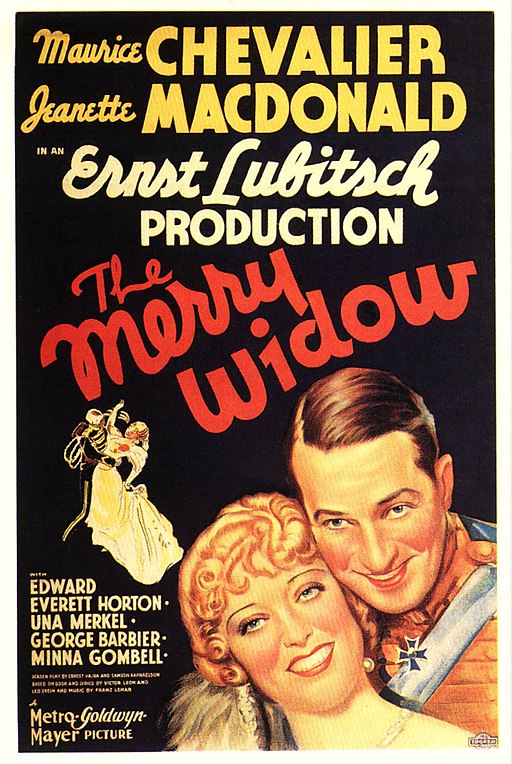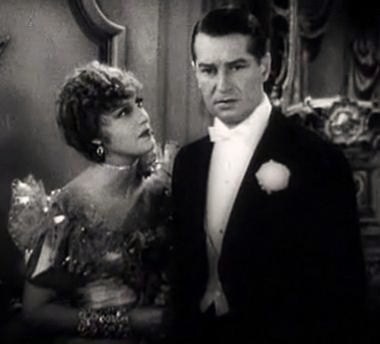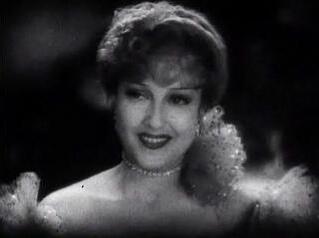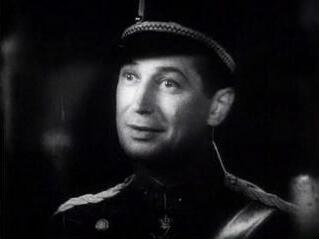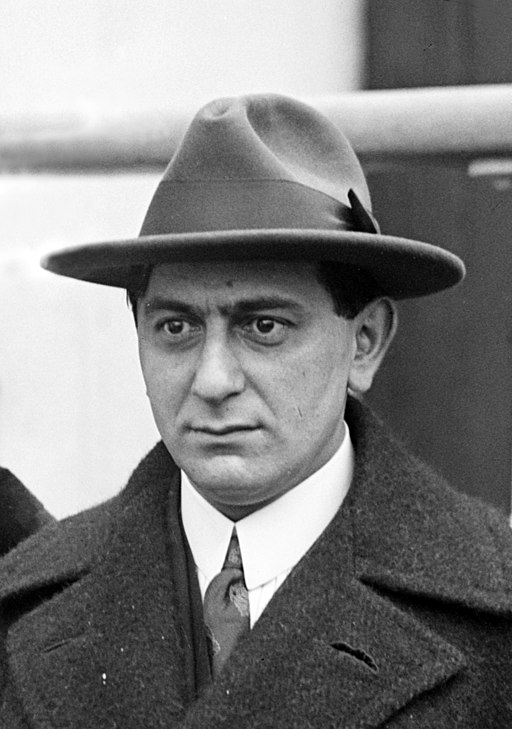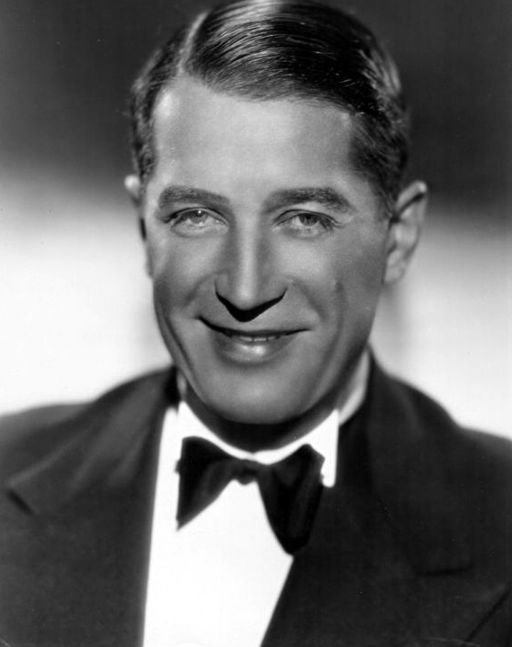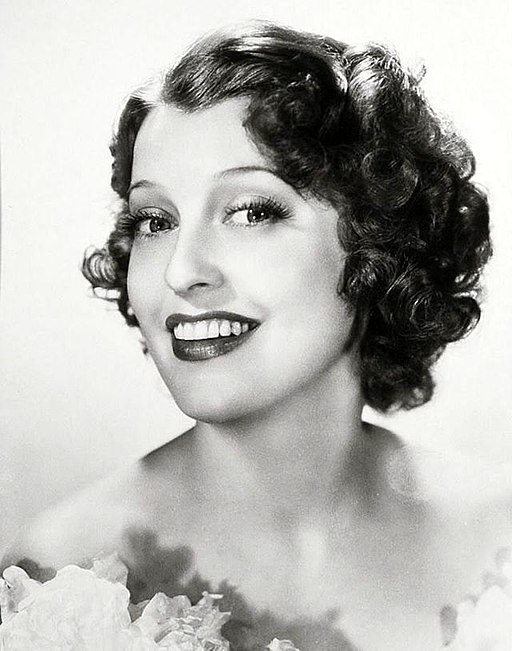The Merry Widow - 1934
back| Released by | Metro-Goldwyn-Mayer |
| Director | Ernst Lubitsch |
| Producer | Ernst Lubitsch |
| Script | Ernest Vajda and Samson Raphaelson, based on the operetta by Franz Lehár, Viktor Léon, and Leo Stein |
| Cinematography | Oliver T. Marsh |
| Music by | Franz Lehár, with additional music by Herbert Stothart |
| Running time | 99 minutes |
| Film budget | $ 1.6 million |
| Box office sales | $ 2.8 million |
| Main cast | Maurice Chevalier - Jeanette MacDonald - Edward Horton - Una Merkel |
The Merry Widow
Elegant romance meets musical enchantment
"The Merry Widow" (1934), directed by Ernst Lubitsch and starring Maurice Chevalier and Jeanette MacDonald, is a hallmark of the Golden Age of Hollywood musicals.
Set against the backdrop of the fictional kingdom of Marshovia, it tells the story of a playboy count tasked with courting a wealthy widow to save his country's finances.
The film is celebrated for its sophisticated blend of humor, romance, and memorable musical numbers, epitomizing the "Lubitsch touch" through its elegant direction, witty dialogue, and subtle innuendo.
Related
The Merry Widow – 1934
"The Merry Widow" (1934), directed by Ernst Lubitsch and known for its sophisticated blend of humor, romance, and musical elements, is a classic film that epitomizes the "Lubitsch touch." This film is an adaptation of the popular operetta by Franz Lehár, which had been a significant success on stages worldwide. The movie stars Maurice Chevalier as Count Danilo and Jeanette MacDonald as Sonia, the wealthy and alluring widow, setting the stage for a story filled with wit, charm, and the complexities of love.
Summary
The narrative unfolds in the fictional kingdom of Marshovia, where the nation's finances are on the brink of collapse. The solution to this crisis, according to the kingdom's officials, is for Count Danilo to court and marry Sonia, a Marshovian expatriate residing in Paris, whose late husband's fortune could save the country. Danilo, initially unaware of the true motive behind his mission, is sent to Paris to fulfill this duty.
Upon arrival in Paris, Danilo visits the nightclub where Sonia frequently goes, intending to begin his courtship. However, their first encounter does not go as planned, leading to a series of misadventures and misunderstandings. Despite the initial friction and Danilo's reluctance to marry for money, he and Sonia gradually fall genuinely in love.
The film showcases a series of elegant and elaborate musical sequences, including romantic songs and dances, which are integral to the narrative's development. The chemistry between Chevalier and MacDonald is palpable, lending credence to their characters' evolving relationship.
Analysis
Ernst Lubitsch's direction is a key element of "The Merry Widow," characterized by his subtle humor, innuendo, and the sophisticated treatment of romance and sexuality. This approach, often referred to as the "Lubitsch touch," makes the film a quintessential example of his work, blending elegance with a light-hearted narrative.
The screenplay by Ernest Vajda and Samson Raphaelson adeptly adapts the operetta for the screen, maintaining its musical essence while ensuring the story fits the cinematic medium. The dialogue is witty, and the situational comedy is executed with finesse, a testament to Lubitsch's skill in handling romantic comedies.
The cinematography by Oliver T. Marsh and the music, primarily by Franz Lehár with contributions from Herbert Stothart, enhance the film's aesthetic and emotional appeal. The visuals are lush and the musical numbers are integrated seamlessly into the story, advancing the plot and deepening character development.
"The Merry Widow" was a triumph for MGM, showcasing the studio's ability to produce lavish and sophisticated musicals. The film not only entertained audiences but also demonstrated the potential of musical cinema as a serious art form.
In conclusion, "The Merry Widow" (1934) stands as a landmark film in the musical and romantic comedy genres. Its enduring appeal lies in its masterful direction, charismatic performances, and the timeless story of love overcoming obstacles. Ernst Lubitsch's craftsmanship, combined with the talents of Maurice Chevalier, Jeanette MacDonald, and the supporting cast, creates a cinematic experience that is both enchanting and visually stunning.
Official Trailer of The Merry Widow:
Full Cast:
- Maurice Chevalier as Count Danilo
- Jeanette MacDonald as Sonia
- Edward Everett Horton as Ambassador Popoff
- Una Merkel as Queen Dolores of Marshovia
- George Barbier as King Achmet of Marshovia
- Minna Gombell as Marcelle
- Ruth Channing as Lulu
- Sterling Holloway as Mischka, the Orderly
- Donald Meek as Valet
- Herman Bing as Zizipoff
- Akim Tamiroff as Turk (uncredited)
- Sidney Toler as Marshal (uncredited)
Analysis of the Direction of Ernst Lubitsch:
Ernst Lubitsch, a German-born director who became one of Hollywood's most revered filmmakers, is celebrated for his unique style and cinematic language, famously dubbed the "Lubitsch touch." This touch is characterized by subtlety, wit, and a sophistication that transcended the norms of early 20th-century cinema, especially in the realms of romantic comedy and musicals. In analyzing Lubitsch's direction, particularly in films like "The Merry Widow" (1934), several key aspects stand out:
Elegance and Sophistication
Lubitsch's films are marked by an unmistakable elegance and sophistication, not just in their visual style but also in their narrative structure and character development. He had a knack for crafting stories that, while often set in opulent or aristocratic settings, remained accessible and engaging to audiences through universal themes of love, desire, and social satire. "The Merry Widow" exemplifies this through its lavish sets and costumes, coupled with a plot that balances the opulence of royal life with the universal appeal of romantic entanglements and misadventures.
Subtlety and Innuendo
One of the hallmarks of Lubitsch's direction is his use of subtlety and innuendo. He was a master at suggesting more than what was shown on screen, allowing audiences to read between the lines and find humor or meaning in the implications rather than explicit statements or actions. This technique not only circumvented the censorship norms of the time but also engaged viewers' imaginations, making his films more intellectually stimulating and emotionally resonant. In "The Merry Widow," the romantic and sexual tensions between characters are often conveyed through clever dialogue, glances, and situations that imply rather than show, exemplifying Lubitsch's skill in this domain.
Musical Integration
Lubitsch's approach to musicals was innovative; he seamlessly integrated musical numbers into the narrative, using them to advance the plot or develop characters rather than as mere interludes. His background in theater and operetta informed his understanding of music as a storytelling tool, a sensibility that shines in "The Merry Widow." The film's musical sequences are not just performances but integral parts of the story, enhancing the emotional depth and advancing the romantic plot in ways that dialogue alone could not.
Characterization and Performance
Lubitsch had a keen eye for casting and eliciting nuanced performances from his actors. He directed stars to deliver performances that were at once grounded and stylized, imbuing their characters with a sense of believability even in the most extravagant of settings. His ability to draw out the comedic and dramatic potential of actors like Maurice Chevalier and Jeanette MacDonald, ensuring their performances struck the right balance between the theatrical and the genuine, is a testament to his directorial prowess.
Satire and Social Commentary
Finally, Lubitsch's films often contained elements of satire and social commentary, subtly critiquing societal norms, class distinctions, and the follies of human nature. "The Merry Widow" uses its romantic and comedic plot to explore themes of wealth, power, and the absurdities of aristocratic life. Lubitsch's satirical edge added layers of meaning to his films, making them not just entertaining but also thought-provoking.
In conclusion, Ernst Lubitsch's directorial approach in "The Merry Widow" and his broader body of work is marked by a distinctive blend of elegance, wit, and narrative sophistication. His ability to convey complex ideas and emotions with subtlety and humor, to use music as a narrative force, and to draw compelling performances from his actors, all while engaging with broader societal themes, cements his legacy as one of cinema's greatest directors.
The Talent of Maurice Chevalier:
Maurice Chevalier's performance in "The Merry Widow" (1934) stands as a quintessential example of his charm, wit, and exceptional talent as an actor and singer, qualities that made him one of the most beloved figures in early Hollywood cinema. As Count Danilo, Chevalier brings a delightful blend of sophistication and roguish charm, embodying the character's complexities with apparent ease and contributing significantly to the film's success. His performance can be analyzed through several key aspects:
Charismatic Presence
Chevalier's screen presence is undeniably magnetic. From the moment he appears, he commands attention, not just through his physical appearance but through his demeanor and the vivacity he brings to the role. His charisma serves as a critical anchor for the film, drawing audiences into the romantic and comedic world of "The Merry Widow." Chevalier's ability to balance the aristocratic bearing of Count Danilo with a relatable, down-to-earth charm is a testament to his skill as an actor.
Musical Talent
As a musical film, "The Merry Widow" showcases Chevalier's talents as a singer. His musical performances are not merely acts of vocal skill but integral parts of his character development and the storytelling process. Chevalier's singing voice, with its distinctive timbre and expressive range, conveys a spectrum of emotions, from the lighthearted to the deeply romantic. His ability to perform songs in a way that feels natural and character-driven adds a layer of authenticity to the film's musical numbers, enhancing the emotional impact of the narrative.
Comedic Timing and Expression
Chevalier's comedic timing is impeccable. He delivers lines with a precision that maximizes their humorous potential, demonstrating an innate understanding of rhythm and pacing in comedy. Furthermore, his facial expressions and body language contribute significantly to the comedic effect, often saying more than words could. Whether through a raised eyebrow, a sly smile, or a theatrical gesture, Chevalier's non-verbal communication is as effective as his spoken dialogue in eliciting laughter and empathy from the audience.
Romantic Lead
As the romantic lead, Chevalier navigates the complexities of love, desire, and duty with finesse. His chemistry with Jeanette MacDonald (Sonia) is palpable, making their on-screen relationship compelling and believable. Chevalier's portrayal of Danilo's transformation from a reluctant suitor to a man genuinely in love is nuanced and convincing. He captures the subtleties of romantic longing, jealousy, and reconciliation, grounding the film's more fantastical elements in genuine human emotion.
Cultural Ambassador
Finally, Chevalier's performance in "The Merry Widow" and his broader body of work in Hollywood cinema of the era serve as a bridge between American and European cultural sensibilities. His French charm and sophistication added an exotic flair to the films he starred in, appealing to both American audiences and international viewers. In "The Merry Widow," his embodiment of a European aristocrat with a distinctly French allure provides a layer of cultural richness to the film.
The Outstanding Performance of Jeanette MacDonald:
Jeanette MacDonald's performance in "The Merry Widow" (1934) exemplifies her remarkable abilities as both an actress and a singer, showcasing the unique blend of talent that made her one of the most iconic stars of the golden age of Hollywood musicals. Playing the role of Sonia, the wealthy and sought-after widow, MacDonald delivers a performance that is both captivating and nuanced, contributing significantly to the film's charm and emotional depth. Her portrayal can be analyzed through several dimensions:
Vocal Performance
MacDonald's operatic training and exquisite soprano voice are central to her performance, bringing Franz Lehár's music to life with both technical skill and emotional expression. Her singing is not just a display of vocal prowess; it's an integral part of her character's expression, conveying Sonia's emotions, from her wistfulness and longing to her joy and resolve. MacDonald's ability to integrate her singing seamlessly with her acting allows the musical numbers to advance the narrative and deepen the audience's understanding of her character.
Emotional Range
MacDonald exhibits a wide emotional range in "The Merry Widow," navigating the complexities of her character's journey from mourning to love, from independence to vulnerability. Her performance captures the multifaceted nature of Sonia, portraying her as both a strong, independent woman and a romantic figure capable of deep love and affection. MacDonald's expressiveness, whether in moments of comedic timing or dramatic intensity, adds layers to her character, making Sonia a relatable and compelling protagonist.
Chemistry with Maurice Chevalier
The on-screen chemistry between Jeanette MacDonald and Maurice Chevalier is one of the film's highlights. MacDonald's interactions with Chevalier sparkle with a mix of playful banter, romantic tension, and genuine affection, making their relationship the emotional core of the movie. MacDonald's ability to match Chevalier's charm and wit scene for scene contributes to the believability of their romance, enhancing the film's overall impact.
Elegance and Screen Presence
MacDonald's elegance and screen presence are undeniable. She brings a grace and sophistication to the role of Sonia, fitting the character's status as a woman of wealth and taste. Her poise and confidence, combined with the glamorous costumes and settings, contribute to the film's visual appeal. MacDonald's presence on screen is both commanding and inviting, drawing the audience into Sonia's world and experiences.
Comedic and Dramatic Skills
MacDonald demonstrates a keen sense of comedic timing as well as the ability to handle dramatic moments with sensitivity and depth. Her performance balances the light-hearted elements of the film's romantic comedy genre with the emotional weight of its more serious moments, showcasing her versatility as an actress. MacDonald's skill in navigating the script's varied tones helps to maintain the film's balance between entertainment and emotional engagement.
Notable Quotes from the Film:
- Count Danilo (Maurice Chevalier) to Sonia (Jeanette MacDonald): "When I'm looking at you, what is time? Today is tomorrow, and tomorrow is today, and yesterday is also tomorrow, and at the same time, today."
- Sonia (Jeanette MacDonald): "I've been married to a corpse for five years. I'm going to be very, very gay!"
- Ambassador Popoff (Edward Everett Horton): "In diplomatic circles, everyone knows that when I say 'yes,' it means 'perhaps,' when I say 'perhaps,' it means 'no,' and when I say 'no,' it means 'no.'"
- Count Danilo: "It's not the wives, it's the mornings after."
- Sonia, upon being pursued for her wealth: "I want to be loved for myself, not for my money."
Awards and Recognition:
"The Merry Widow" (1934) did not receive specific nominations or awards from the Academy Awards or other major film awards ceremonies. This lack of nominations is not necessarily a reflection of the film's quality or its impact on cinema but rather an indication of the historical context of awards and recognitions at the time. The film has, however, maintained a legacy as a classic of the Golden Age of Hollywood, celebrated for its direction by Ernst Lubitsch, performances by Maurice Chevalier and Jeanette MacDonald, and its contribution to the musical film genre.

